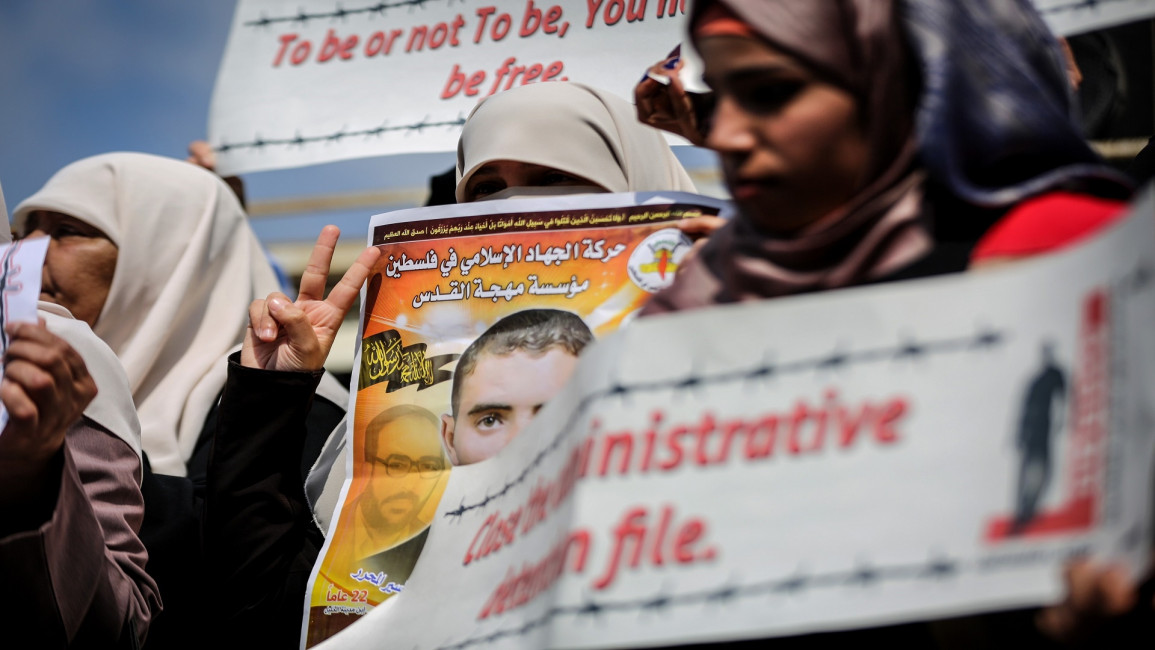
Fashioning defiance from nothing in an Israeli cell
Five years ago, I was going through my late mother's possessions with tears in my eyes. I was sorting what to donate and what to keep, when I chanced upon an odd-looking necklace.
I remembered seeing similar necklaces before. They were sent by Palestinian prisoners inside Israeli jails as gifts to their families.
They make them from materials at hand - empty food wrappers, cans, silver paper, olive pits - with much patience and forbearance to break the monotony of the weeks, months and years spent in the cells of the occupation.
These trinkets have become art pieces in exhibitions organised in Palestinian cities, with small cards indicating the long prison sentence of each item's maker.
Many prisoners write books, prepare studies and finish their education while in prison. They come out with advanced degrees and hold high-ranking positions.
Palestinian Prisoners' Day is coming up. It was created in 1974 and is celebrated in Palestine and the diaspora. The date is not always linked to any specific occasion but is a day to pay tribute to Palestinian prisoners.
| Many prisoners write books, prepare studies and finish their education while in prison. |
This year, it coincides with the death of Jaafar Awad, who was released aged 23 from an Israeli prison after his health deteriorated. That is something that Israel has consistently done. It releases sick prisoners after making sure they will end up in the hospital, where they will be treated for several illnesses caused by willful neglect.
If Awad died from neglect, other prisoners came out of prison to find either their entire families dead or one of the parents dead, having waited so long.
This is what happened with the prisoner Ayman al-Far. His mother visited him in jail for years and dreamt of seeing her son free, but death came before her dream came true. Ayman was released in a prisoner exchange deal two years after his mother died.
During the First Intifada, Israel made a point of arresting torturing and mistreating children to extract "confessions", then releasing most of them after imposing heavy fines on their parents and pursuing its policy of "breaking bones", whereby its soldiers would use metal and wooden clubs on Palestinians.
Israel continues flouting international law by jailing up to 700 Palestinian children each year, scarring them for life.
Palestinian prisoners and their families still manage to defy their tormentors. They have managed to smuggle cellular devices to communicate with each other and sperm to make babies with their wives as proof of their determination to carry on with their lives. The 32 children born so far from smuggled sperm have been called "freedom ambassadors".
I looked at the necklace and saw the letters of my name etched upon it, as well as the word Nafha - the name of an Israeli jail - on one of its beads sculpted from an olive pit. I do not know who made it.
I know I will not find answers to my futile questions. I just wish I received this necklace. I would have waited for its imprisoned maker, like many Palestinian women who spend years waiting for their loved-ones behind bars, living in the hope of being reunited with them one day.
In the meantime, they make do with short and far-off visits, during which conversations of the eyes and words of the heart pass between them, despite state of the art surveillance devices in Israel's prisons.
This is an edited translation of the original Arabic.




